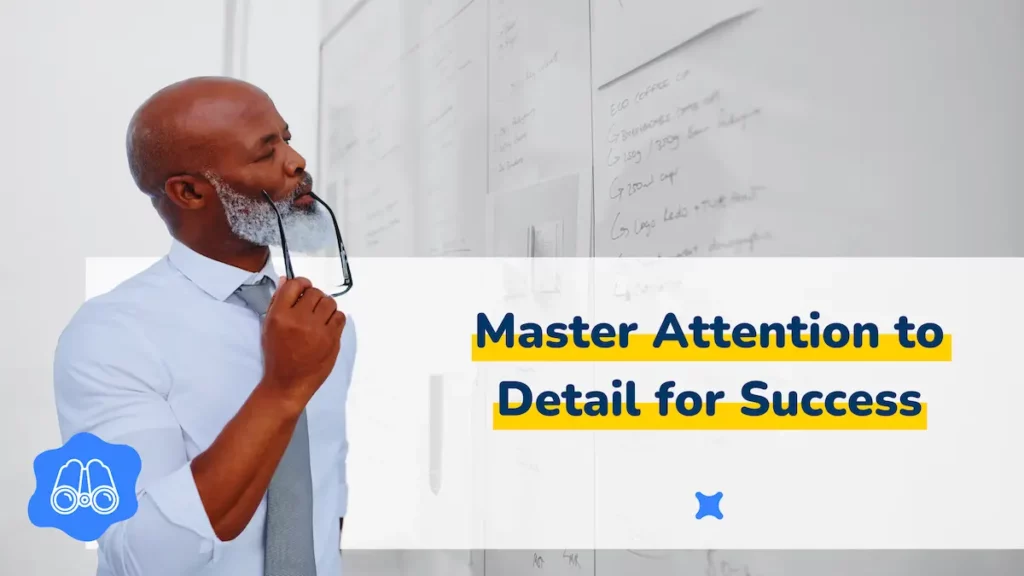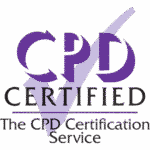Mastering attention to detail is a crucial skill that can significantly impact your professional and personal success. This skill can set you apart in any field. This guide explores what attention to detail entails, its benefits, and strategies to improve this essential skill.
What is Attention to Detail?
Attention to detail is the ability to focus on every aspect of a task, ensuring it is done accurately and thoroughly. It means paying attention to small elements and executing tasks with precision. This skill involves several key components:
Accuracy
Accuracy is about completing tasks without errors. It requires a meticulous approach to ensure that every aspect of the task meets the required standards. Accurate work reduces the need for rework and corrections, saving time and resources.
Thoroughness
Thoroughness ensures every part of a task is complete. It involves a comprehensive approach, making sure no detail is overlooked. Thoroughness often involves double-checking work and being diligent in follow-up.
Concentration
Concentration is the ability to stay focused on the task at hand. It involves avoiding distractions and maintaining a steady focus on the work until it is completed. Good concentration helps in achieving high accuracy and thoroughness.
Observation
Observation is about noticing and understanding subtle details that others might miss. It involves being attentive to the environment and the task, picking up on small cues that could be significant.
Why Attention to Detail Matters
Enhances Quality of Work
In any job, the quality of your work is critical. Paying attention to details ensures tasks are done accurately, reducing errors and producing superior results that can enhance your reputation.
Improves Efficiency
Although it might seem like focusing on details slows you down, it actually makes you more efficient in the long run. Doing things right the first time saves time and resources by minimizing the need for corrections.
Boosts Professionalism
Attention to detail shows that you care about your work and are committed to excellence. This trait is highly valued by employers and clients, demonstrating your reliability and thoroughness.
Facilitates Problem-Solving
Detail-oriented people are good at spotting problems and coming up with effective solutions. They can identify inconsistencies and errors, addressing issues before they escalate.
How to Develop Attention to Detail
Cultivate Mindfulness
Practices like meditation can improve your focus and concentration, helping you notice and process details more accurately. Mindfulness unquestionably helps you stay present and fully engage with the task at hand.
Organise Your Workspace Accurately
A tidy workspace can help you stay focused and find the tools and documents you need, reducing errors. Hence, organisation reduces clutter and distractions, making it easier to concentrate on detailed tasks.
Create Thorough Checklists
Checklists help ensure thoroughness by breaking tasks into smaller steps, making it easier to manage and avoid overlooking details. Whenever you use them, they serve as a guide to ensure all aspects of a task are completed.
Practice Active Listening
Fully engaging with speakers and understanding their messages can improve your ability to notice and remember important details. Active listening involves paying full attention, avoiding interruptions, and reflecting on what is said.
Proofread and Review
Always review your work. Not only can proofreading catch mistakes you might have missed initially, but also getting a colleague to review can offer new perspectives. Reviewing helps ensure accuracy and completeness.
Attention to Detail in Different Professions
Healthcare
Attention to detail is critical in healthcare. For example, medical professionals need to accurately diagnose and treat patients, requiring careful observation and thorough analysis. Mistakes in healthcare can have serious consequences, making precision essential.
Engineering
Engineers rely on precision to design and build safe, functional structures. In fact, detailed calculations and meticulous planning are essential to avoid costly errors. Being precise ensures the safety and functionality of engineering projects.
Legal Profession
Legal professionals must scrutinise contracts and legal documents, as overlooking a single detail can significantly impact a case. Therefore, accuracy and thoroughness in reviewing documents are crucial to avoid legal pitfalls.
Creative Industries
In creative fields, attention to detail can make the difference between good and great work. Given that perfecting finer points can elevate the quality of the final product, detailed attention in creative work ensures a polished and professional outcome.
Benefits of Attention to Detail
Career Advancement
Employees who are detail-oriented often look reliable and competent, making them prime candidates for promotions. Attention to detail can set you apart from your peers and open doors to new opportunities.
Increased Job Satisfaction
Completing tasks accurately and efficiently can lead to a sense of accomplishment and job satisfaction, boosting self-esteem. Satisfaction from well-done work enhances overall job fulfillment.
Enhanced Reputation
A reputation for thoroughness and accuracy can attract new opportunities and clients, as people prefer working with reliable individuals. Building a reputation for attention to detail establishes trust and credibility.
Attention to detail is a vital skill that affects all areas of life. By understanding its importance and working to improve it, you can enhance your efficiency, professionalism, and overall success. Strategies like mindfulness, organization, and thorough review practices can help you develop a keen eye for detail, setting you apart in any profession.
Mastering attention to detail is about more than just avoiding mistakes; it’s about achieving excellence in every task. Cultivating this skill will undoubtedly open doors to numerous opportunities and drive professional growth.
FAQs
What does attention to detail mean in the workplace?
Attention to detail in the workplace means focusing on all aspects of a task to ensure it is completed accurately and thoroughly. It involves being meticulous, observant, and thorough in your work.
How can I improve my attention to detail?
You can improve your attention to detail by cultivating mindfulness, organizing your workspace, creating checklists, practicing active listening, and consistently reviewing your work.
Why is attention to detail important in healthcare?
Attention to detail is vital in healthcare to accurately diagnose and treat patients. It ensures that medical professionals do not overlook critical symptoms and provide the correct treatment.
What are some common mistakes made due to lack of attention to detail?
Common mistakes due to lack of attention to detail include errors in data entry, miscommunication, overlooking critical information, and failing to follow procedures correctly.
Can attention to detail be taught?
Yes, attention to detail can be taught and developed through practice and training. Techniques such as mindfulness, organization, and thorough review can enhance this skill.
How does attention to detail affect job performance?
Attention to detail positively affects job performance by ensuring accuracy, reducing errors, and enhancing the quality of work. It demonstrates professionalism and reliability, which are highly valued by employers.








